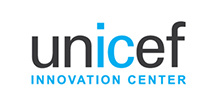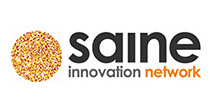Navigating Consumption's Triple Bottom Line
By Louise Burgers
Achieving sustainability goals is a risk management strategy to ensure business growth and consumer loyalty.

A Global Innovation Advocacy Campaign
Sponsors and Partners:
 About sponsor
About sponsor
UNICEF Innovation is an interdisciplinary team of individuals around the world tasked with identifying, prototyping and scaling technologies and practices that strengthen UNICEF's work. We build and scale innovations that improve children's lives around the world. UNICEF Innovation works across three main areas: Providing support to hundreds of global UNICEF innovation projects that may need new partners, technologies or connections Development of and experimentation with new operational models, such as the UNICEF Fellows program Looking at the 3–5-year future horizon for UNICEF, including things that are coming but not yet ready, such as 3D printing, the future of transportation and identity, digital currency and other future possibilities
 About sponsor
About sponsor
Produced by IDG, the DEMO conferences in the United States, China, Brazil, Russia and Vietnam focus on emerging technologies and new product innovations. The DEMO conferences have earned their reputation for consistently identifying tomorrow's cutting-edge technologies and have served as launchpad events for companies such as Palm, E*Trade, Salesforce, Webex, Tivo, VMware, Fusion-io and thousands of others, helping them to secure venture funding, establish critical business relationships and influence early adopters. The DEMO Scholarship Partner Program, subsidized by corporate sponsorships, offers multiple scholarship opportunities to ensure that deserving entrepreneurs have the chance to introduce cutting-edge technology products at DEMO that might have otherwise gone undiscovered.
 About sponsor
About sponsor
Fast Company is a leading progressive business media brand with a unique editorial focus on innovation in technology, ethonomics (ethical economics), leadership and design. Written for, by and about the most progressive business leaders, Fast Company and FastCompany.com inspire readers and users to think beyond traditional boundaries, lead conversations and create the future of business. Launched in November 1995 by Alan Webber and Bill Taylor, two former Harvard Business Review editors, Fast Company magazine was founded on a single premise: A global revolution was changing business, and business was changing the world.
 About sponsor
About sponsor
The South African Innovation Network (SAINe) is a non-profit network providing a neutral platform for activating the multi-helix principle in Southern Africa with the aim of enhancing and promoting the innovation climate in the country. The main aim of the activities associated with the innovation network is to remedy the current lack of reliable data on innovation-related topics as well as contribute to information on progress made in South Africa on innovation. The network also serves as a national resource, providing information on upcoming and ongoing innovation activities as well as assisting with local and international benchmarking.
The Chief Marketing Officer (CMO) Council, the Business Performance Innovation (BPI) Network, SABLE Accelerator and GREEN Network are partnering with UNICEF on a landmark initiative designed to encourage corporate social responsibility by crowdsourcing breakthrough ideas, inventions, products and emerging technologies that can advance the work done worldwide by the UNICEF Innovation Center.
Entitled "Succeed Where There's a Need," this program seeks to create a global open innovation network for the world’s best and brightest youth, innovators, technologists, IT professionals, product developers, researchers, entrepreneurs, academics and post-graduate students. These individuals will come together to identify, adapt and deploy inventive technology solutions that can help UNICEF scale its efforts to meet the ever-growing needs of the poorest and most vulnerable and excluded children across 190 countries.
A dedicated community site, powered by innovation platform leader IdeaScale, will enable participants to share ideas, vote and discuss refinements to “inspirations that overcome limitations.” It will register and profile contributors and run crowdsourcing contests and challenges developed by UNICEF Innovation Labs located in 15 countries. You can preview this site, get a sneak peak of our upcoming plans and learn how you can get involved as an innovator or sponsor at causetech.net.
We have established strategic alliances with media companies and organizations across globe to team with us in this initiative. These partners include news channels, tech hubs, incubators, development groups, entrepreneur associations, and impact investors who can help develop "innovations that overcome limitations."
Campaign Partner Organizations
For more information and to learn how you can get involved in this important initiative as an innovator or sponsor, please visit causetech.net.